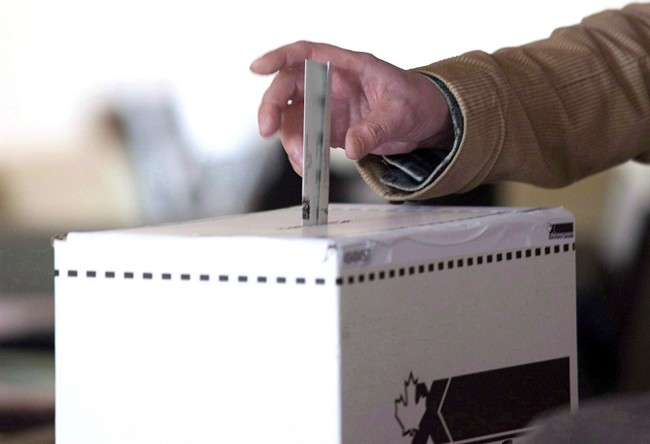OTTAWA – An Ontario court judge has lifted a publication ban on the names of six key witnesses in the robocalls investigation.

The move comes as a result of an application filed by Global News, the Ottawa Citizen and CBC to lift the ban on names and information contained in a sworn to statement by Elections Canada investigator Al Mathews.
Justice Celynne Dorval said in her decision Friday there is no evidence the ban is necessary to prevent a serious risk to the administration of justice.
The witnesses all fingered former junior staffer Michael Sona in relation to robocalls that misdirected voters in May 2011 to the wrong polling stations in Guelph, Ont.
Sona, who is the only person charged in relation to the calls, has maintained his innocence and says he is a scapegoat for the Conservative party. The party denies it was involved.
The Crown had argued the ban was necessary to avoid the harassment of the witnesses – who were Conservative party staffers at the time – and that there was a risk the publicity would deter witnesses from cooperating with authorities.
Sona was not in court Friday but following the ruling he tweeted to the witnesses and linked to a music video called “Nightmare” by Avenged Sevenfold.
http://twitter.com/MichaelSona/status/401369881003581440
Dorval struck down the Crown’s arguments, saying none of the witnesses spoke to Mathews on condition of protecting their identities.
- Alberta to overhaul municipal rules to include sweeping new powers, municipal political parties
- Grocery code: How Ottawa has tried to get Loblaw, Walmart on board
- Military judges don’t have divided loyalties, Canada’s top court rules
- Canada, U.S., U.K. lay additional sanctions on Iran over attack on Israel
“There is simply no evidentiary basis for me to conclude that there is a risk of harassment,” she wrote.
She also said the names of the six witnesses would have been revealed when the matter goes to trial, and that fear of publicity is not isolated to the pre-trial process.
Dorval already lifted a ban this week on the contents of the witnesses’ statements.
The names of the witnesses – all Conservative party staffers at the time – contained in Mathews’ Information to Obtain a production order (ITO):
Rebecca Docksteader (worked for Peace River, Alberta MP Chris Warkentin and it is believed goes by married name Rebecca Carleton);
John Schudlo (worked for Warkentin);
Mitchell Messom (worked for Manitoba MP Steven Fletcher);
Tyler Barker (worked for Senator Carolyn Stewart Olsen);
Benjamin Hicks (former Prime Minister’s Office staffer);
Conrad Johnson (later employed at Fasken Martineau law firm with former PMO chief of staff Guy Giorno).
Court also heard that Arthur Hamilton, lawyer for the Conservative Party of Canada, brought forward three witnesses to Mathews’ attention. Mathews also found two other witnesses, but Hamilton was involved in “securing an interview with them,” Dorval wrote.
Hamilton was also present for five of the six interviews with Elections Canada.
Mathews testified in court that Messom and Barker were concerned about their employment, but he never contacted any of their bosses.
– with files from Rebecca Lindell


Comments